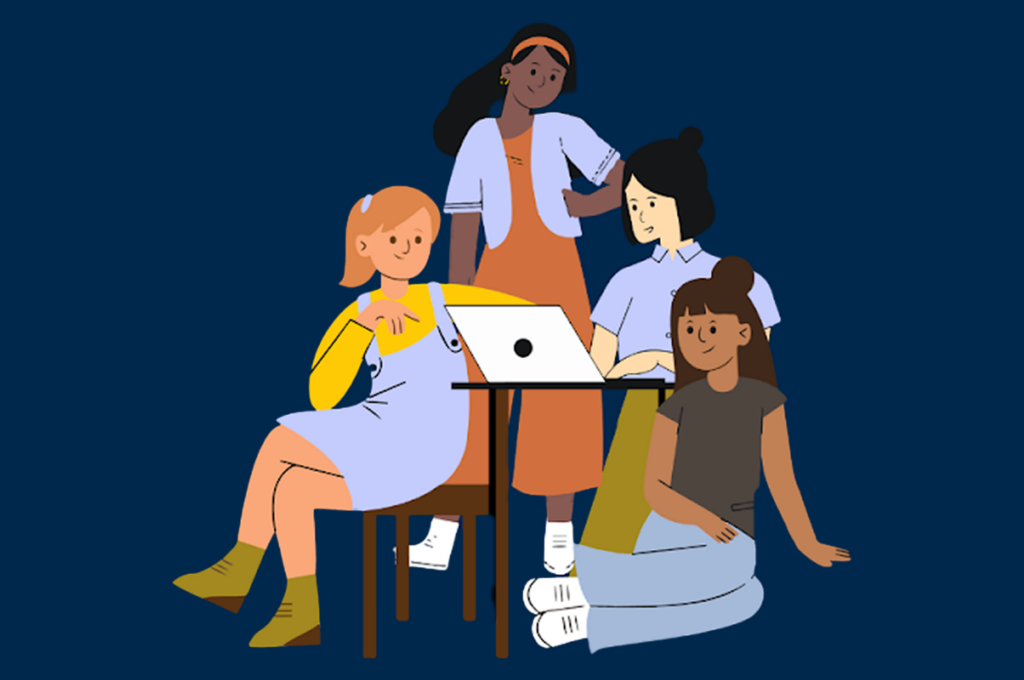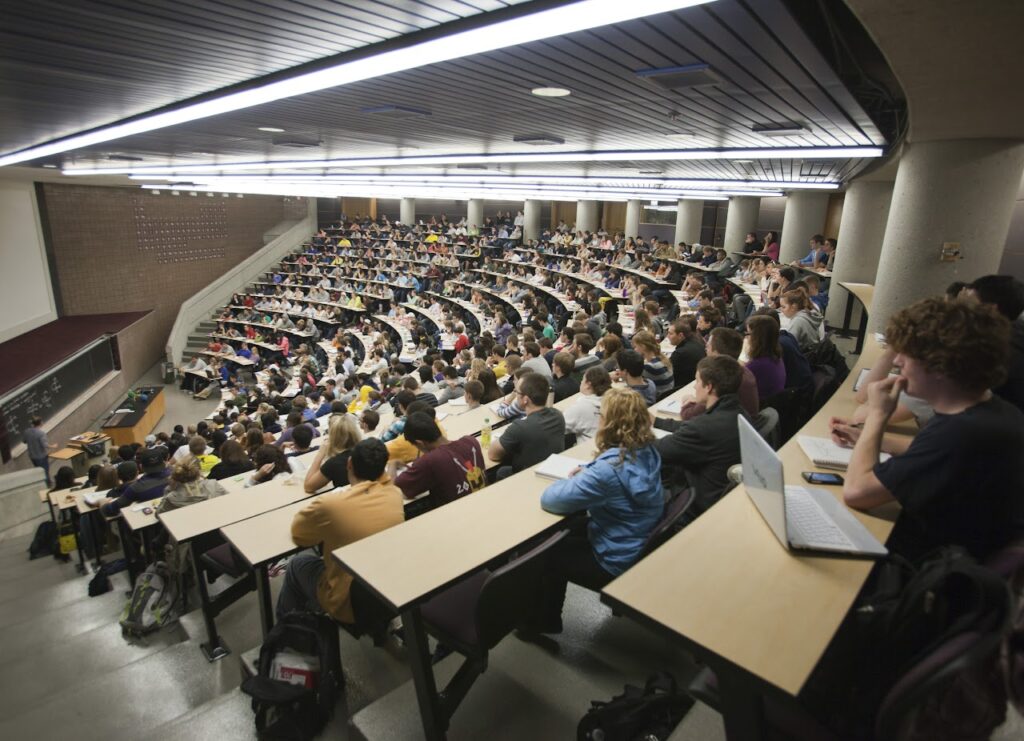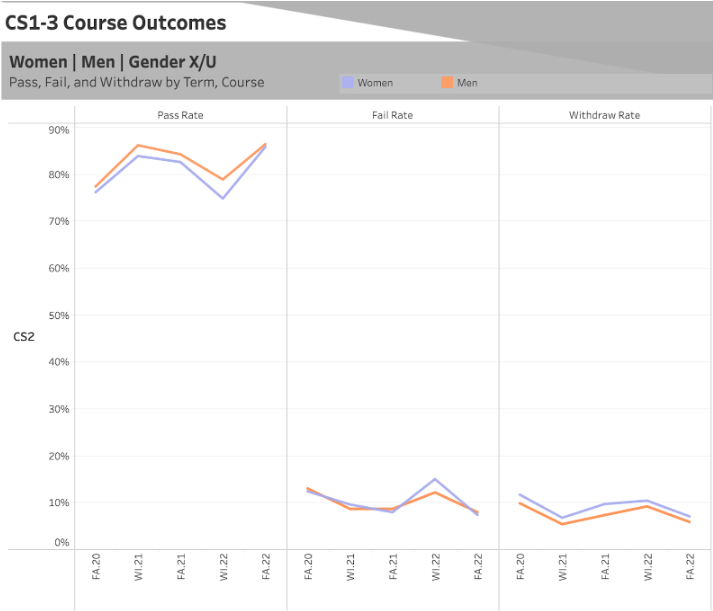RENEW CS bridges persistent gender gap in computer science

Computer science has long been seen as a boy’s club, and this image is closer to reality than you might think. Recent data from the National Center for Science and Engineering Statistics shows that the gender divide in CS is going strong: just 21% of students graduating with bachelor’s degrees in computer science are women.
The University of Michigan sits slightly above this national average, with women making up 23% of undergraduate degree earners in CS in the 2021-22 academic year. In the face of this persistent gender gap, significant efforts are underway in CSE at Michigan to address this disparity and provide support to women and other underrepresented groups in our undergraduate programs.
CSE’s RENEW CS (Recruitment and Retention of Women in Computer Science) program, which recently wrapped up its second year, is already making headway in achieving these goals. With funding from the Center for Inclusive Computing, RENEW CS aims to help women and nonbinary students succeed in undergraduate courses, particularly EECS 183, EECS 203, EECS 280, and EECS 281.

“The goal of the program,” said Rachel Germaine, project coordinator of RENEW CS, “is to provide systemic institutional support to undergraduate students in introductory CS courses. The program is targeted specifically toward women, but also seeks to help other identities that have been historically marginalized and under-supported in higher ed.”
Under the program, substantial structural changes have been made to introductory CS courses, such as reducing the size of lecture and discussion sections and adding course sections to ensure a lower student-to-instructor ratio. In addition, RENEW CS has launched a mentorship program, where students seeking extra support can schedule help sessions with peer mentors. Based on student feedback, the program has also implemented special recruiting and training practices for instructional aides (IAs) and graduate student instructors (GSIs) to address potential bias or exclusionary behavior by other students.
Understanding the causes behind the gender gap in CS and the barriers women and other underrepresented groups face in accessing and succeeding in CS is a key part of designing effective solutions. According to Germaine, the reasons for the disparity are multifaceted.
“Social assumptions about CS and computing in general are engrained at a young age,” said Germaine. “Certain spaces might feel more exclusionary or only available to a certain kind of person. And it can be really wearing for a student not typically welcomed in those spaces to feel like they have to try a lot harder to be heard or belong.”
Widespread perceptions about the difficulty of CS can also be a barrier for women and other minority groups. “There’s a big assumption that CS is really hard. Some students think they won’t be able to succeed in this discipline.”
CSE’s RENEW CS program directly addresses these concerns by providing students with extra support and resources to overcome these barriers. Even though the RENEW CS program is still in its early stages, progress is already being made. The data speaks to this: In CS2 courses specifically (EECS 280 and EECS 203), pass rates for women have increased 10% since fall 2020, while fail rates and withdrawal rates have each decreased by 5%.

Qualitative changes are also taking place. “From talking with the professors who are part of the project and to students who’ve taken the target courses, it’s clear that people are aware of the interventions,” said Germaine. “Students have noticed the actions the Division has taken that are geared toward supporting them and are sharing these resources with their peers.”
Student groups including Girls in Electrical Engineering and Computer Science (GEECS) have also contributed to expanding resources and opportunities for women and girls in CS, both at U-M and in the local community.
In her discussions with students, Germaine said, “the feeling is that the climate at CSE is changing for the better.”
When it comes to the long-term effects of the RENEW CS initiative, Germaine emphasized that it will take some time to streamline the process and see results. “The project and the interventions that we’ve been working on have only been in place for a couple years, so the program is still very much in the pilot stage,” she said.
Even so, RENEW CS is already making a difference in the climate and structure of introductory undergraduate courses at CSE, a crucial step toward making CS a welcoming and inclusive environment for women and all underrepresented groups.
 MENU
MENU 
